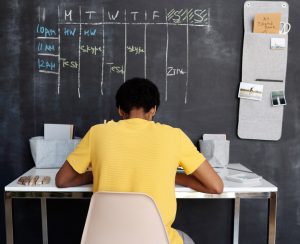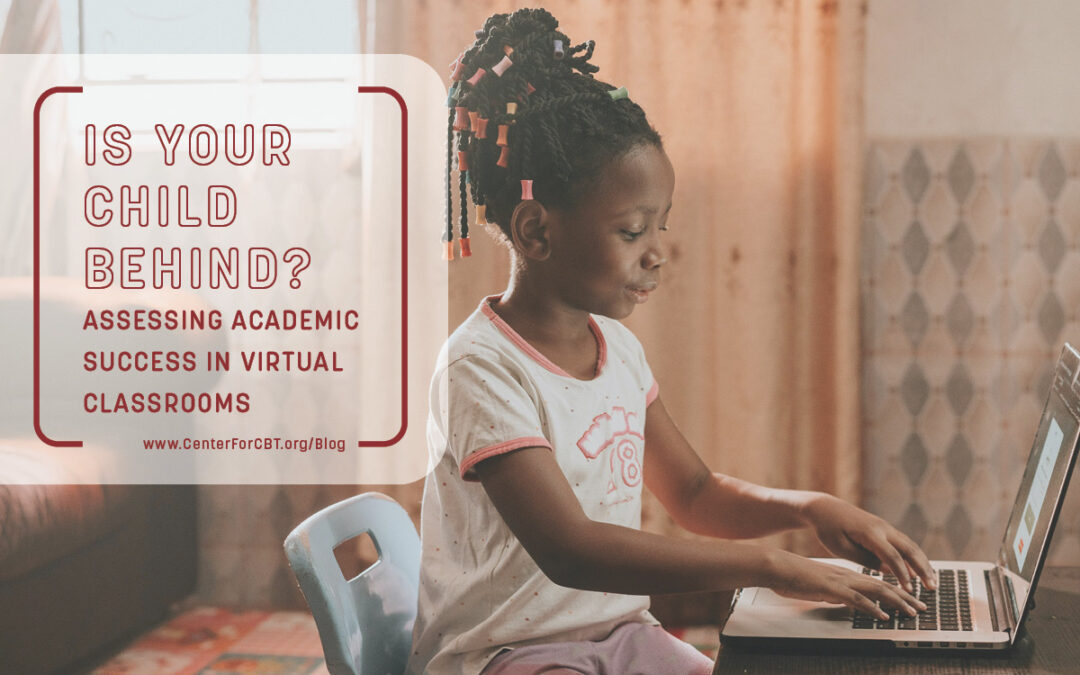This pandemic has brought many changes for children and families. The shift to remote and/or hybrid learning is undoubtedly one of the biggest adjustments. It has drastically changed children’s school lives. Many parents are now concerned with their child’s academic progress. They feel the loss of the traditional classroom environment has a negative impact on academic and social development. Virtual classrooms seem to be missing the stimulation children need to thrive.
Even students that have returned to in-person learning could be experiencing academic setbacks. The sudden transition between virtual and physical classrooms leaves children struggling with structure.
Are you comparing your first grader’s performance to that of his/her peers? Do you find your younger child struggling in areas others aren’t? Have you been consulting with other parents to find out if your child is behind?
Whatever your situation may be, you’re not alone. Many families share the same concerns as you. They’re seeking answers too.
5 Signs Your Child Is Struggling
It’s not unusual for children to have trouble adjusting to the pacing of online education. Yet, it’s important that you’re mindful of your child’s performance. Here are some key indicators to be on the lookout for:
- Consistently has poor grades
- Variable grades, i.e. significant discrepancies between test scores and homework or projects.
- Needs to spend an excessive amount of time and effort on schoolwork
- Has difficulty understanding and following instructions
- Avoids schoolwork
Overcoming Challenges In Virtual Classrooms
This pandemic has presented us with unique circumstances. In some ways, it has highlighted issues for certain students. Students who were struggling before COVID, now face challenges in virtual learning environments. Students who were able to get by in physical classrooms may now flounder in the online classroom.
As a result, families must be more involved in their child’s learning. More time and attention are needed to address some of these concerns. Finding that time could be a challenge in and of itself.
Most parents are unaccustomed to the high level of involvement virtual classrooms demand. Daily checks may be needed to ensure assignments have been turned in, completed, etc. Extra support, both in and out of the classroom, could also be needed.
Virtual classrooms could also make it more difficult for teachers to assess individual students’ needs. A student’s lack of understanding could go unnoticed. In-person learning provides social engagement that differs from virtual learning. Students may be more passive during instruction time because of this.
To address these concerns, your child could need more support during class. This extra help could lead to better effective learning and retaining academic material.
Double-check with your child for understanding. This is an important component in overcoming academic challenges. Encourage your child to discuss the new content he/she is learning with you or another family member. These in-person conversations could help your child tremendously.
You can also facilitate this process in a virtual setting with a peer or in a small group. Incorporating more one-on-one or small group activities will help hold students accountable. It will reinforce the content they’re learning and help them retain the information.
Monitoring Academic Performance
It’s important to be aware of how your child is doing across all subjects. This is the easiest way to identify if there is an area of difficulty. If you find your child consistently below expectations in a certain area, it could be a red flag. Gather information to get the full picture of your child’s learning experience. Only then can you take the necessary steps to address any concerns for learning differences:
Encourage open communication.
Encourage an open dialogue with your child. This is the first step toward positive change. It’s about gathering information. You need to understand your child’s performance and attitude towards learning. Open dialogue increases your awareness of potential issues.
Keep in mind your child may experience embarrassment or other negative feelings related to an area of difficulty. This can lead to avoidant behaviors. Does your child disengage during classroom lectures? Have you noticed a lot of procrastination? Are teachers emailing you about missing assignments? Does your child shut down and withhold information? These are all signs of avoidant behavior.
When engaged in these open conversations, it is important to not be punitive or shaming. You’re on their side. That’s the key message you need to get across. The goal is to work with them to figure out how to make their learning experience better.
Utilize available technology.
Most schools have online platforms that allow families access to their children’s classroom performance. Often, these platforms update families on assignment due dates and other important information. Be sure to check in often and stay informed of your child’s progress. This will also help avoid any misinformation your child may or may not provide. Any miscommunications can then be addressed in positive and constructive ways.
Consult your child’s educators.
Having open communication with your child’s teachers is another important step in this process. In addition to regularly scheduled parent-teacher conferences, you should feel comfortable reaching out to your child’s teachers with any concerns. Ideally, teachers will also let you know when a problem becomes apparent. As soon as an area of difficulty is identified, it is best to act quickly so your child can receive the extra support that is needed.
Make a plan.
After gathering information and checking in with your child and their teachers, you may decide your child would benefit from extra support. This may mean that your child works one-on-one with a teacher before or after school, engages in academic tutoring sessions, or requires assistance and specific strategies that you can help implement when assisting your child with homework. For example, a child may need specific prompts to stop and think about what they have read to improve reading comprehension. Or when completing math problems, they may need reminders to highlight the operation so that they do not make errors due to inattention.
 Assessing Time and Effort
Assessing Time and Effort
Another factor to consider is the amount of time and effort your child spends on his or her academic work. Although a child may get good grades or receive average marks, they may be spending an excessive amount of time to maintain this level of performance. Since these difficulties may be more subtle, these children can fly under the radar for far longer before their problems are identified. If these children continue to proceed through school unnoticed, they typically come to a point where the academic demands exceed the amount of time they have to complete their work.
For example, an elementary school student may be able to take longer to complete their work because the overall time demand does not significantly limit their availability to engage in other activities. However, given the increased academic and time demands of a high school course load, students cannot be expected to continue to spend an excessive amount of time on each academic assignment. If your child is one of these students that requires significant time and effort to keep up with academic demands, this may be the time to implement some extra support strategies.
Students may receive significant support from their teachers and families due to the above concerns. However, there are times when too much support allows a child to progress through school without obtaining solid mastery of academic concepts. It’s important to help your child find a balance of support and independent work, allowing them to overcome areas of difficulty with confidence in their own abilities. The goal is to hold them accountable for their work, but offer support as needed to help them continue to progress.
What If My Child Does Not Make Progress?
If implementing extra support strategies doesn’t result in meaningful progress, it may be time to seek professional help from a neuropsychologist or clinical child psychologist. In addition to learning differences, there are a variety of factors that can negatively impact a child’s academic performance and limit their ability to efficiently acquire new information. Inattention, trouble with aspects of language, and anxiety are a few examples of other factors that can masquerade as learning problems. It can be difficult to discern why a child is experiencing difficulty in certain areas because many children struggle due to a combination of factors. Without clarity regarding a child’s primary issues, it can be difficult to implement effective interventions.
Once you are able to accurately identify your child’s areas of difficulty, it can utilize specific interventions to address these concerns. However, keep in mind that effective interventions require adaptation based on the individual’s needs and personal preferences. In any case, your child will be best supported by a team of adults that practice open communication and work collaboratively toward the same goals.


